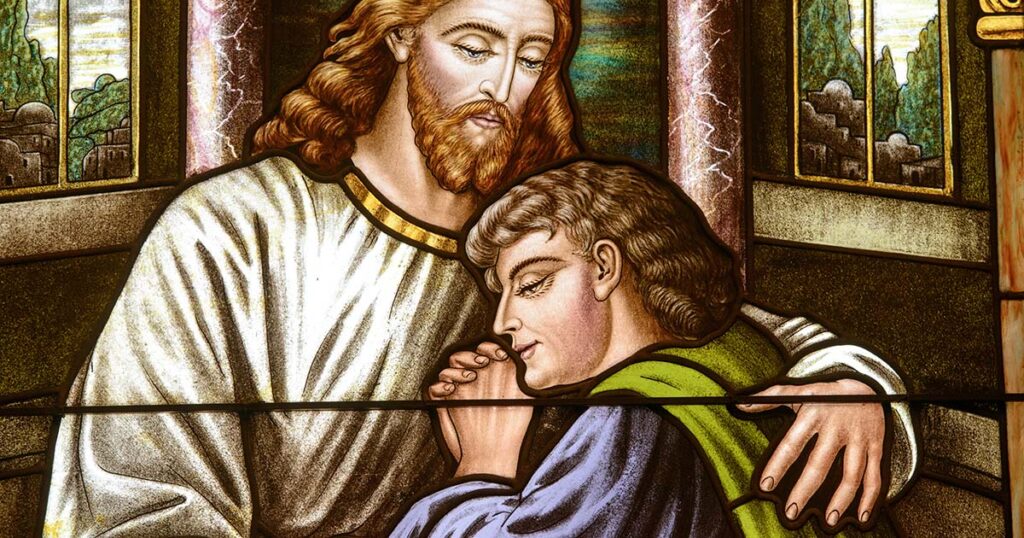Tuesday morning, 11:30.
The ultrasound probe is in place. My legs shake involuntarily.
“Sorry about that.”
“That’s okay.”
I clasp my hands and wait for the otherworldly thud-thud-thud song of my baby’s heart beating in the womb. I stare at the screen anxious to see our baby’s new profile. I can’t wait to surprise my husband, Oliver, with new pictures of our baby looking much more babyish than at our last ultrasound.
Silence.
Then a sigh.
My heart drops.
Is the baby gone?
“Do you want me to turn the screen and show you what I’m seeing?”
I nod, words caught in my throat.
“This spot here is where the blood came from. In front of it is your baby. I’m not seeing a heartbeat.”
The doctor meets my gaze and watches the tears roll down my cheeks. Her eyes are sad and sincere.
“I’m so sorry. I truly did not expect this.”
She brings her colleague in to confirm. The probe goes back in and this time I don’t attempt to stop my legs from shaking.
“I’m so sorry.”
Much is said after that. I struggle to listen as I wrestle against the wave that threatens to overcome me. I know I cannot fall apart yet. What is the doctor saying?
I have three options.
I can wait. It may take up to eight weeks for my baby and the rest of the pregnancy to vacate my uterus.
I can induce. I can put a pill inside that will induce my uterus to empty itself. This will be fast, and it will hurt.
I can do surgery. The doctor will remove the baby and everything else for me. There should be less physical pain this way.
How can I choose?
Is it selfish to have the baby taken from my body, as though it were unwanted, a parasite for extraction? Doesn’t this go against every instinct that wants to cling to the life that was inside me? Will I be judged for this?
Is it more dignified to miscarry naturally? But can I stand the agony of waiting and waiting for everything to come out? Will I actually see the baby if I do it this way? Can I handle that sight?
Am I weak to fear the pain of inducing the miscarriage? Would the physical pain help to justify the emotional torture, to make it tangible? Doesn’t this loss warrant the flowing of suffering and blood?
I remind the doctor of my blood clotting disorder and ask what option she would advise. It is a small relief to place the burden of choice back in her hands.
Surgery would be best, she explains, to keep bleeding under control. She breaks down the details: 7 a.m. tomorrow for surgery, get here at 6, someone will need to drive me, stay with me.
That someone will be Oliver. My heart aches weightily as I ponder having to tell him all of this.
With plans made for surgery, I am released, and I somehow make it to my car in the parking garage.
Alone, I release the tension that has held me together for the past hour. The sobs come and they are ugly, broken sobs I would have been embarrassed for another person to hear come from me. I give them their moment then pull carefully out of the garage. I drive the 20 minutes home in silence.
Waiting
Waiting.
Waiting is agony.
I message my boss. I won’t be in tomorrow, or the rest of the week. I don’t know how to type these words with the sensitivity that they warrant. Everything sounds cold. Harsh. Unfeeling. I let it go and send the text.
Waiting.
I cry. I put on my favorite sitcom and let my eyes glaze over. I stroke the pets and cuddle them in my lap. I cry. I fall asleep. I wake up. I cry.
Finally, Oliver is home. I have rehearsed in my head ways to break this to him. I have even entertained somehow just not telling him. I wish there were some way to spare him from this. There is not.
He opens the door. “Hey!” His tone is bright, happy to be home.
My heart aches with love for him.
He walks into the living room. Our eyes meet, and I am shattered. He gathers me into his arms, tears matching mine before I get the words out.
“We lost the baby.”
Wednesday morning, 5 in the morning.
Curled up in bed. Fetal position.
“I don’t want to go.”
Oliver holds me through sobs.
What I don’t say in the moment is that I don’t want to go because going will make this real. If we go, they will take the baby from my body and my baby will be gone.
But I do go, because I must.
“I’m sorry you’re here for this; I know this is not where you want to be.” The nurse is a middle-aged woman with lines of experience crinkling her eyes over the mask that she wears. She talks to us as she cuffs my wrists with hospital bands, asking us how long we’ve been married, how we met. Oliver gives most of the answers. I am barely in the room.
I am given mesh underwear and a pad to put on. I have seen these underwear in the countless maternity and postpartum videos I have been watching to help prepare me for my motherhood experience. Nothing I watched has prepared me for this. I had expected to smile at the irony of wearing a diaper while I diapered my newborn.
I had not anticipated this context — because it wasn’t going to happen to me. I wasn’t going to be the 1 in 4.
The nurse wraps a blood pressure cuff around one arm and an oximeter around my pointer finger. She presses sticky patches with tubes protruding from them onto my chest. In the shower later I will scrub their residue from my skin with my nails until my flesh bears red scratches leading to my heart.
“Are you in any pain this morning?”
“No.”
A bitter part of me conjures a sarcastic response, because what a question to ask a woman whose child is dead within her. Yes, I am in pain. I am in more pain than I have felt in my entire life. But I don’t say this. It’s not the nurse’s fault and she has been kind to me. I consider how difficult it must be to do a job like this, providing services to people in their saddest and most vulnerable moments.
After a litany of other questions, the nurse drapes a heated blanket over me and tucks it around me. An IV punctures the vein in my right hand. The doctor comes in and explains the procedure again, and I nod along. I take two antibiotic pills with a gulp of water.
We are alone for a moment. Oliver comes to my side and we hold each other.
We weep.
It is time.
“The room will be brighter, and colder” the nurse warns. It is.
I am supported as I transfer my body to the operating table, blanket still wrapped around me. I lay back and a mask covers my face. I breathe, and I’m gone.
Conscious again.
After a moment I recall where I am. Involuntary tears stream from my face.
“Do you want something to drink? We have water, tea, some sodas … Pepsi, Sierra Mist?”
This nurse is young and energetic. Disoriented, I try to focus on her question.
“Sierra Mist.” She hands me a tiny can with a straw and walks out of the room. The taste is startling and too sweet.
Dazed, I touch the tubes resting on my chest. One is red and for a moment I am alarmed, sure that there is blood in the tube and that something went wrong in the surgery. I follow the tube with my finger and realize it’s connected to the heart monitor, not my IV. No blood, just a red tube.
The realization of my situation hits me again, and I tug the blanket and gown out from underneath me. Drawing my hand back towards my face, I see blood on my fingers.
The curtain moves and the nurse returns.
The voice that comes from me is childlike. It does not sound like me.
“Is the baby gone?”
Is the baby gone?
Many philosophers and theologians with far more education than I have explored this question. At what point in development does a person become a person? When do we gain a soul? If there is an afterlife, do miscarried babies go there? If they are conceived by sinners and inherit that sin, are they automatically forsaken by God, having never confessed their belief in Him? What happens to their souls?
As a Christian, I am comforted by the love of a mighty and merciful God. These passages in particular comfort me:
For you formed my inward parts; you knitted me together in my mother’s womb. I praise you, for I am fearfully and wonderfully made. Wonderful are your works; my soul knows it very well. My frame was not hidden from you, when I was being made in secret, intricately woven in the depths of the earth. Your eyes saw my unformed substance; in your book were written, every one of them, the days that were formed for me, when as yet there was none of them.
Psalm 139:13–16
In those days Mary arose and went with haste into the hill country, to a town in Judah, and she entered the house of Zechariah and greeted Elizabeth. And when Elizabeth heard the greeting of Mary, the baby leaped in her womb. And Elizabeth was filled with the Holy Spirit, and she exclaimed with a loud cry,“Blessed are you among women, and blessed is the fruit of your womb! And why is this granted to me that the mother of my Lord should come to me? For behold, when the sound of your greeting came to my ears, the baby in my womb leaped for joy. And blessed is she who believed that there would be a fulfillment of what was spoken to her from the Lord.”
Luke 1:39–45
Now the word of the Lord came to me, saying,“Before I formed you in the womb I knew you, and before you were born I consecrated you; I appointed you a prophet to the nations.”
Jeremiah 1:4–5
God is intimately involved with the design and formation of every piece of His creation. Even the tiniest pieces, even those invisible to our eyes, are formed with intricacy and care: snowflakes, plants, insects, the cells in our bodies.
If God knows when a mere sparrow falls, if He knows the number of hairs on our heads, if He called Jeremiah to be His prophet before he was even conceived, then God knows our child too.
And if John could leap in the womb to be near to his unborn Savior, then the Holy Spirit can bless our child with saving faith.
God knows the pain of losing a child. He endured this pain willingly in sacrifice for us, His adopted children. Jesus took on humanity and suffered loss and pain, and He knows every tear that we will shed.
I do not believe the baby is gone. I believe that our Eden is in the arms of our Savior, and that we will see our child face to face, either when we are called to heaven or when Christ returns.
I will not pretend that this hope has kept me from being angry at God. I thank God that He is forgiving and patient with His people, because I will need His grace as I grieve and wrestle with my doubts, questions and pain.
Come quickly, Lord Jesus.
Photo: LCMS Communications/Erik M. Lunsford






So thankful you wrote your story down. You remember that I have a similar story from so many, many years ago. I know that your story will be a comfort and encouragement to others.
Thank you for sharing. So many of us don’t even think that it could possibly happen because our joy and love runs over at the expectations of having a child. Your experience is so very real of what can happen this side of heaven, your willingness to share will be a help to others, this I have no doubt. Yes, your child is with Jesus but that your child is forever with you too. No one can take Eden from you.
It’s been over twenty years and I remember our loss like it was yesterday, but not like I was…I remember it now like I am, healed and whole. God is faithful, he brought me through, he provided for me in every way. He healed me physically, emotionally and spiritually. He mended my shattered/broken heart. He filled me with Hope and taught me how to completely trust in him alone and continues to show his great love to me. My prayer is that you too will know this healing and wholeness. God bless you and your husband and all others on this journey.
Very touching story. We know these little ones are children, fully human as we are. It’s a loss. Your story brings eternity into focus, and God’s love in such a time of sadness. God be with you.